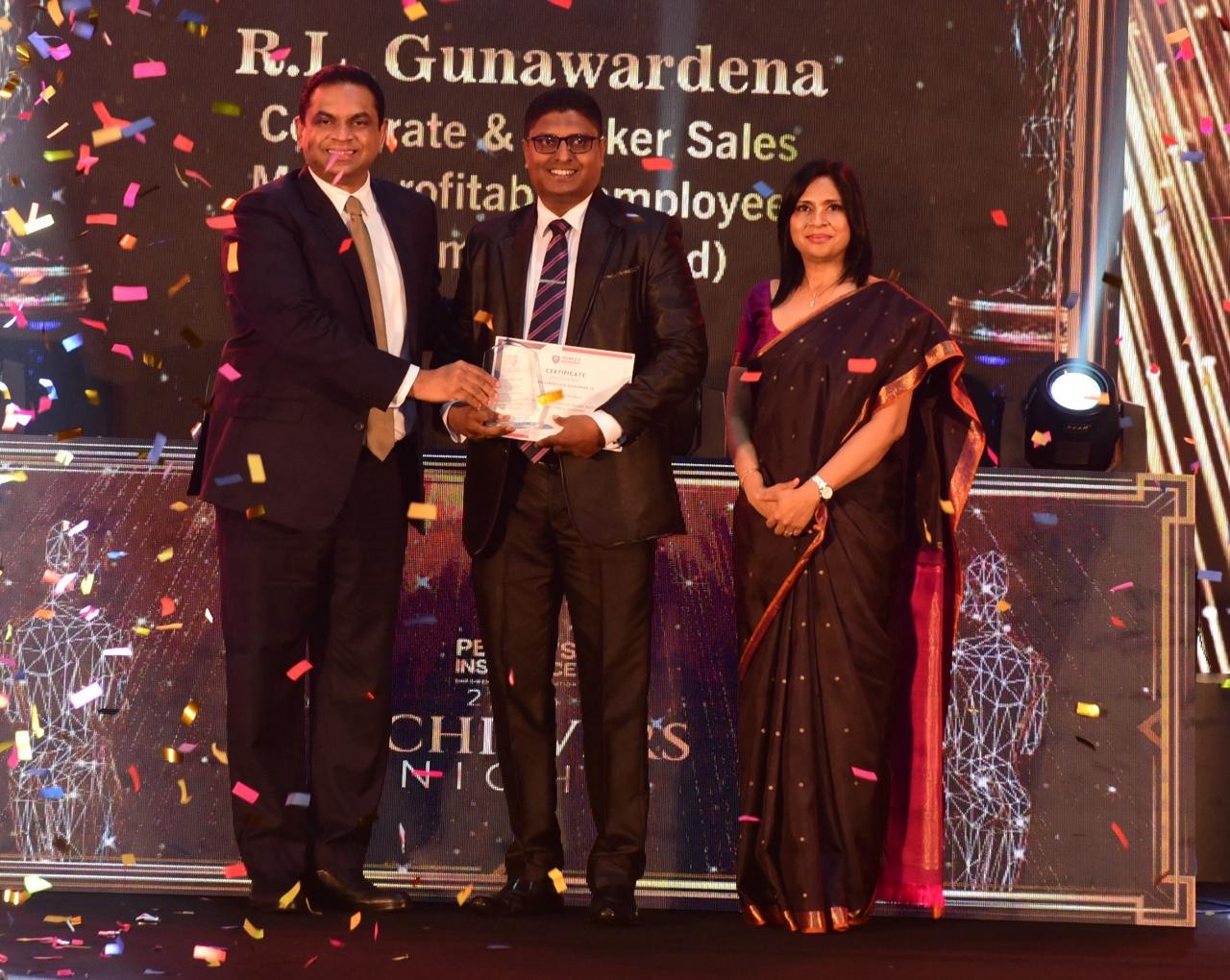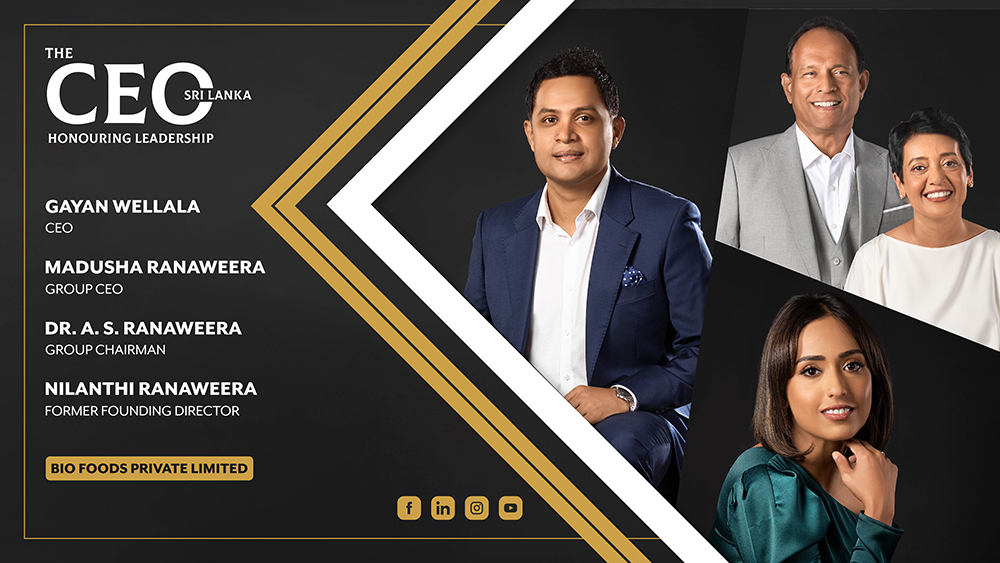1.Bio Foods is celebrating its 30th anniversary this year. What are some of the key reflections and emotions that come to mind when you think about this incredible journey? (Answered by Dr. Sarath Ranaweera, Group Chairman)
It is a very challenging task, to sustain a business for 30 years, not just in Sri Lanka, but anywhere in the world. It’s been a particular challenge for Bio Foods because we tried to do everything a little differently. Our company began with Fairtrade practices before the fair trade labeling organization was even established, and when it was, I was a part of the standard-setting committee for Asia. One could say Bio Foods had a head start on this, but that path was not easy. We built and educated farmers on internationally certified organic and Demeter practices- we now have over 15,000 farmer families through a couple of farmer organizations, and we have 4 different value chains to process the things they grow. We started with tea, expanded to spices- now our largest business unit, and then expanded to coconut and IQF (Frozen) products. When we began, we were the first company in the world to export organic, fairtrade, and Demeter teas, spices, and coconut products. It’s quite a significant milestone for us as a company, but also an accomplishment for Sri Lankan producers/exporters in general. We also have a 5th value chain, which is our only non-exported value chain: Fertilizer. This SBU just turned 10, and was Sri Lanka’s first internationally certified organic biofertilizer. It took 4 years of research to build, but our farmers have been using it for years prior to the government’s decision to ban chemical imports to the country. Once again, we had a bit of a head start on that situation. So it is with pride that we look back on all of these accomplishments. We have several significant awards and accolades that we have acquired over the years, but the most meaningful ones to me are these pioneering steps we took on a global and local stage.
2.Sustainability has become an increasingly important focus for businesses globally. How does Bio Foods incorporate sustainable practices in its operations and contribute to a greener future? (Answered by Ms. Madusha Ranaweera, Group CEO)
I do feel that the vision of our founding Chairman set the stage for us to be a real role model in the field of sustainable businesses in the World. He ensured that farmers were trained to grow while adhering to international organic standards, and bio-dynamic standards, and their efforts were rewarded by the fairtrade model (where their cost of production is always covered regardless of market price drops, and they receive an additional premium that they are able to use to enhance the living standards of their communities, thereby giving them a reason to keep growing this way). This was no small task. It’s hard to convince people in general, let alone farmers, to try something new. Today, Bio Foods has built the largest Biodynamic (Demeter) farmer base in Sri Lanka- an impressive accomplishment, given that Demeter is the highest food quality certification in the world at the moment. A greener future is inherently guaranteed by this model- we use no chemical additives so we preserve the soil, the water, and biodiversity. We also have stopped using fossil fuels to power our factories, after having switched to Biofuels and solar power during the pandemic. We also locally produce our own certified organic fertilizer and source most of our packing material from Sri Lanka, reducing our carbon footprint however possible by avoiding imports. Of course, we are continually looking for ways to keep minimizing our harmful impact on our environment however possible.
3.Consumers today are more conscious about the origins of their food and the impact it has on communities. How does Bio Foods ensure the welfare and development of local farmers and communities involved in the supply chain? (Answered by Dr. Sarath Ranaweera, Group Chairman)
This is quite simple for Bio Foods. Holding many international organic certifications means that every part of the journey that food makes, from farm to table, is traceable to the end consumer. We have been this way for decades. With regards to the welfare of the farming community, again this has always been ensured by the fair trade practices we had from our very inception, but having the Fairtrade certifications means that we are audited by a 3rd party annually at the very least, to make sure there is transparency in the premium being collected, and properly utilized by the farmer organizations. Transparency and traceability are two things that have given Bio Foods such a competitive edge for the last few decades, but beyond that, it has also been a core part of the Bio Foods business model since its very beginning.
4.As a leader in the organic sector, how do you envision the future of the organic food industry in Sri Lanka, and what role do you see Bio Foods playing in shaping that future? (Answered by Mr. Gayan Wellala, CEO, Bio Foods Sri Lanka)
Bio Foods has been leading in the industry for over 30 years, earning millions of foreign currencies for the development of the nation, even during the pandemic period. Our success was mainly due to the social development of small-scale farmers, such as SOFA and MOPA. Our strength lies in the value-addition we do by processing and packing these international standard food products in Sri Lanka. Because we rarely import even packing material, close to 100% of that value addition remains inside the country. This means that we are at the lowest contributing end on the balance of payment pressure. Taking agricultural products from smaller-scale farmers to world standards, the consistent engagement of our farmer base over three decades was mainly due to safeguarding their income through our fair trade practices. This pioneering vision is why our Founder, Dr. Ranaweera, was awarded the prestigious and inaugural World’s Fairest Fairtrade Award in 2014 by the Fairtrade Labelling Organization itself. Further, our farmer societies MOPA and SOFA were awarded the world’s best small farmer societies in 2014 and 2015 respectively. Our work and model were being recognized and appreciated in Europe long before it received any attention locally.
In terms of the future, Bio Foods maintains a lasting relationship with 10,000+ farmers in their ups and downs throughout the past years, who are the root of our success journey. A well-diversified labor force, very high standards, and consistency in the model, even during challenging times, give us the competitive edge to be the top preferred choice for clients willing to buy organic from Sri Lanka as well as South Asia. As a company established 3 decades ago, we have always shaped the face of the organic agriculture-export sector in the country, and with our plans of expansion, our continuous innovation of our product range, and our active engagement with international standard-setting bodies, we will continue to shape the path for this sector in Sri Lanka.
5.What measures have been taken to address the economic crisis in Sri Lanka and what role does agriculture play in this solution? (Answered by Gayan Wellala, CEO, Bio Foods Sri Lanka)
In recent months, Sri Lanka’s economy has stabilized with tight monetary controls. Inflation has dropped to 6% in July from 70% a year ago. However, it is important to ensure fiscal consolidation and national financial discipline to sustain our solutions to economic challenges. Export sources have contributed to the momentum to a great extent throughout history, with agriculture-based exports playing a very important role.
Our nation has a remarkable track record in agriculture over 2500 years. We used to feed not just ourselves, but also other countries in our history. Cultivation was not just an economic function, but a passion in our life that shaped society, culture, religion, etc. It is essential to maintain the confidence of farmers towards the continuation of the agriculture industry by securing their earnings and well-being. Otherwise, their future generations will look for alternative career options. Currently, though nearly one-third of the workforce is in the agriculture sector in the country, the total export earnings from agriculture is only 16% of total export earnings in the country (with tea accounting for 52%, coconut 24%, and spices 12%).
To address the economic crisis in Sri Lanka, the focus must be on expanding the country’s export sector with SMEs – especially those in agriculture. We must learn from countries like China, Philippines, Korea, and Indonesia. They all have governments that support agricultural and rural modernization programs for economic development. Similar to them, Sri Lanka has also been mastering agriculture for thousands of years and has nothing to reinvent, but the government support could definitely be improved for the export agriculture sector of the country.
6.Throughout history, many industries, including the corporate world, have been known for having a “glass ceiling” that limits the advancement of women in leadership roles. As the Group CEO of Bio Foods, you’ve undoubtedly played a crucial role in the company’s success. Can you share a bit of your journey and what you would share with aspiring career-women? (Answered by Madusha Ranaweera, Group CEO, Bio Foods).
I started in 2016 (as a Management Trainee, rose through the ranks to Chief Marketing Officer in 2018, and CEO in 2022. Most recently (August 2023), with the establishment of the first British subsidiary of Bio Foods, I became the Group CEO. My father, Dr. Sarath Ranaweera is the Founder and Chairman of the company, but due to our partnership with GLS Bank, our business has a semblance of a corporate structure with due-processes. I do prefer that, because I’m a bit of a stickler for systems and structures being respected. When I returned as CEO in early 2022, it was after facing 3 rounds of interviews with the Board and shareholders of the company and a 6 month trial period.
For aspiring career women, what I would say is that it’s important to remember that everyone’s journey is different. We all start from different places, with varying advantages, but it is up to you to know how to use everything life throws at you. Life is full of challenges, but you can either waste those challenging experiences or you can really use them to learn something and grow. Something that I wish I did more when I was younger is listen to my instincts. We live in a society that constantly encourages us to question it. Looking back on it, I realized that perhaps I should have listened to it more because it was almost always correct, but it’s important to know that instinct is something that has to be developed, and for that experience is invaluable. The challenge is in learning how to distinguish your instinct from every other voice in your head. So, if you start out your entrepreneurial or career journey with this as a conscious objective, I feel like you can accomplish what you want to that much faster.


